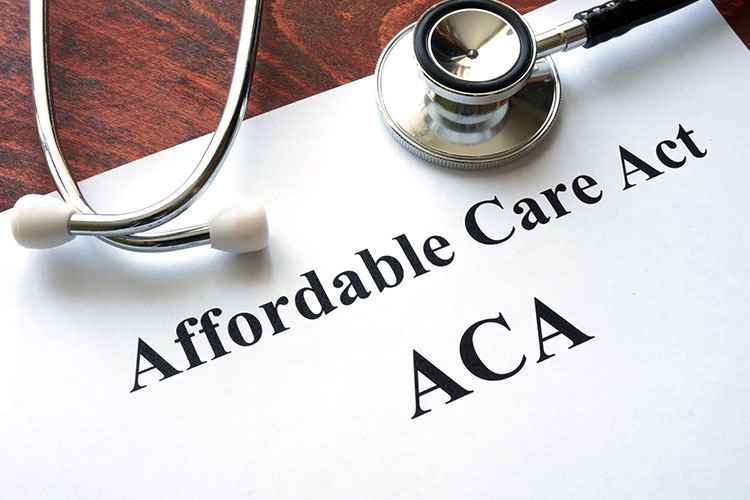Today the ACA is still alive. Donald Trump’s campaign boast that he would sign a bill repealing the Affordable Care Act (ACA/Obamacare) on his inauguration day is long gone and forgotten. House Speaker Paul Ryan and Senate Majority Leader Mitch McConnell’s gamble that by April 28th the ACA would be effectively decimated using the expedited budget reconciliation process proved to be a sucker’s bet.
Undeterred, White House and House operatives are trying by Wednesday to line up 216 votes—not to pass the Republicans’ American Health Care Act (AHCA), but to feign signs of progress to dampen the white-hot anger of the Republican base at their Party leaders’ inability to enact the ACA repeal promised since the law’s signing on March 23, 2010. They want to take a third run at it this week and perhaps succeed after two prior failures. Senate Republicans, meanwhile, are crossing their fingers hoping that the House fails, sparing the upper chamber the funerary duties. For the Senate to advance ACA repeal now, a new and wholly unimagined bill would need to be constructed.
The level of legislative malpractice evidenced by Speaker Ryan and his team since January is staggering and perplexing. They designed a bill that the Congressional Budget Office estimated would cause 24 million Americans to lose health insurance. They advanced a proposal that provoked public opposition from the American Hospital Association, the American Medical Association, the American Nurses Association, AARP, and hundreds of other national organizations representing Americans with serious stakes in our health care system. They invented a plan that generated unprecedented grassroots support for the ACA and fierce opposition aimed at them. For the first time, Ryan’s plan turned most Americans into ACA supporters. His legislation generated support from only 17% of Americans, an unheard of level of non-support.
Why did they do this and why do they persist?
Trump and Ryan both showed their hands in recent public statements linking ACA repeal with their tax cut agenda; Trump’s tax plan was released in one-page outline form this past week. To Republicans, the ACA’s poison is not the insurance expansion that bears remarkable resemblance to the two public health insurance programs they have always loved: Medicare Part C or Medicare Advantage, and Medicare Part D, the outpatient prescription drug benefit.
To Republicans, the most objectionable parts of the ACA are the tax increases embedded into title 9 of the law to pay for half its costs. Two tax hikes are especially heinous to them, both involving new taxes on high income families: a .9% Medicare payroll tax on earned income for families making more than $250,000 a year and b. a 3.8% tax on unearned (investment) income on the same households. The Center for Budget & Policy Priorities calculates that repealing these two taxes, as proposed in Ryan’s AHCA, would cut taxes by an average $7 million annually for each of the nation’s 400 wealthiest families, and provide $0 cuts for the 160 million families with incomes below $200,000 annually. Of note, last week’s one-page tax cut summary released by Team Trump includes repeal of the ACA’s 3.8% unearned income tax.
The ACA still stands, and seems likely to do so even if Team Ryan manages to squeeze the AHCA bill through the House this week. And other serious threats remain.
A key part of the ACA’s affordability formula involves “cost sharing reductions” (CSR) to protect families with incomes between 138 and 250% of the federal poverty line (between $26,800 and $50,400 income for a family of 3 in 2017) from high deductibles, coinsurance, and copayments. In 2013, the House sued the Obama Administration for funding CSRs without direct Congressional appropriations. Last year, a federal district court judge ruled in the House’s favor, and an Appeals Court hearing is scheduled for mid-May. President Trump indicated that he might hold the CSR payments hostage to coerce Democratic support for Ryan’s AHCA bill, a threat dismissed by Democratic Leaders Chuck Schumer (D-NY) and Nancy Pelosi (D-CA). Last week, the Trump Administration committed to continuing to pay for CSRs, though the end of September.
The Trump Administration has other leverage because they control the bureaucracy that keeps ACA coverage expansions operating. They have narrowed open enrollment periods for individuals to enroll or reenroll. They have been unwilling to assure health insurers of their commitment to keeping the insurance exchanges functioning. Trump often cites a mistaken belief that the exchanges are fatally flawed and beyond repair—even though many, especially the state-run versions, are performing well.
Many other parts of the ACA are holding firm. Congress and the Administration show no desire to repeal the medical care delivery system reforms established by the ACA such as accountable care organizations, bundled payments, hospital penalties for high rates of readmissions and hospital errors, and many more.
Much valuable repair work could be done to stabilize and enhance the workings of the U.S. health care system, including and beyond the Affordable Care Act. If House Republicans fail to pass their ACA-repeal bill this week, they may finally be compelled to articulate a Plan B because the American public is rejecting their repeal and replace agenda.
This week counts.
